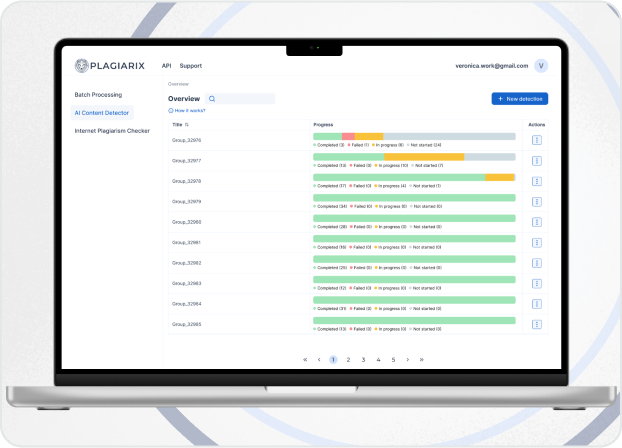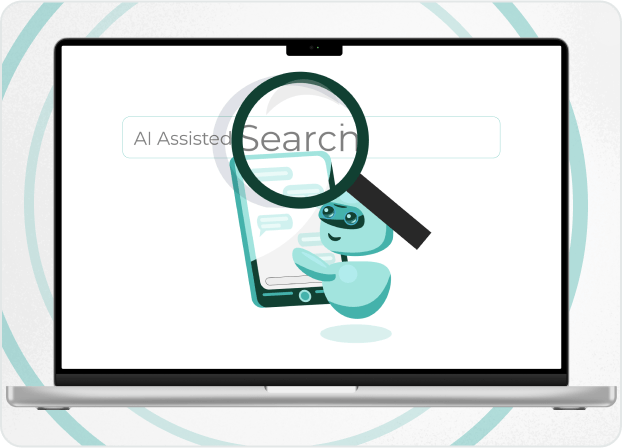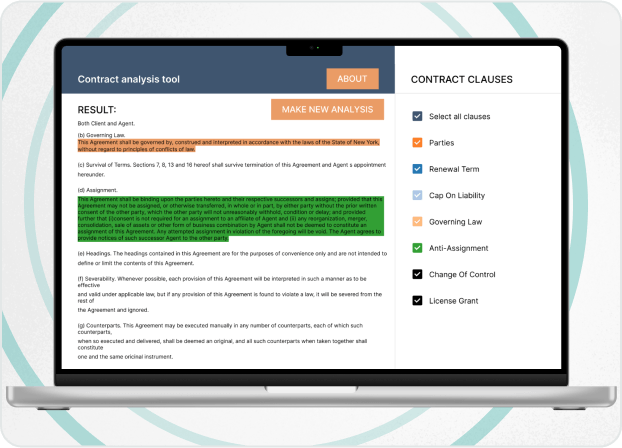
Expert’s Thoughts

"When we hear about the application of AI technologies, we typically refer to the tasks of content writing, translating and editing, coding or data analysis. But what if we say that the AI usage can increase the efficiency of business decision making?
Silk Data is here to present the blogpost regarding use cases, benefits and considerations of AI decision making."
Yuri Svirid, PhD. — CEO Silk Data
AI Decision Making. Predictive Analytics, Smart Recommendations and More.
The issue of utilizing artificial intelligence in decision making and strategic planning is becoming more pressing for business owners than ever before.
According to Forbes survey of 2024 94% of business leaders have reconsidered their decision-making processes since 2021. The focus has been made on aligning with new technological trends where AI holds the leadership.
The decision-making optimization through AI is an important branch of AI and NLP industries development. The AI application in strategic planning can be carried out via AI agents (advanced AI models developed with the aim to assist in specific tasks) or advanced analytics when useful insights are extracted from large amounts of data.
There are many spheres of AI application in decision making, but before getting to their consideration, we’ll have to describe the essence of the concept itself.
What is AI Decision Making?
Artificial intelligence decision making is the process when the organization’s decision-making workflows are carried out with the assistance of AI model or software. During the process, the AI model analyzes data, identifies patterns and makes choices or recommendations with minimum human intervention. We can highlight several ways of such assistance:
- 1
Decision Support via Advanced Data Analysis
The method focuses on the model’s capabilities of advanced data processing when it extracts useful insights or summarizes large textual or tabular data. The result is used by humans for further work as data-driven decision-making examples. - 2
Recommendation Systems
The method when the AI model is capable of not only data processing, but also of providing data-driven recommendations. These recommendations can be analyzed by human specialists and customized if necessary. - 3
Full Decision Automation
The way of AI application, when the machine takes responsibility for the decision-making process. It perceives, processes and analyzes data and finds the best possible solutions. Prominent representatives of a full automation approach are AI agents. They can not only perform advanced data processing and provide recommendations through implemented reasoning feature but also demonstrate significant results in self-correction with minimum human interference.

Note! Before utilizing any of the ways of AI-based assistance in decision making, you should keep in mind that even the most explicit model is not guaranteed from flaws and unreasonable solutions. That’s why even now, when the top AI developers permanently raise the quality and complexity of their models’ responses, people still don’t fully trust ChatGPT-like tools.
We’ve thoroughly discussed vital considerations regarding ChatGPT and AI agents’ implementation in our previous blogposts.
AI Decision Making Use Cases

Condition and Efficiency Monitoring
One of the cases of AI decision-making is identifying inefficiencies, recommending improvements or possible solutions in real time.
For instance, agricultural companies can predict the risk of crops and animal diseases via advanced data processing and analysis. At the same time, procurement organizations can use AI-based data summarization of customer requests for transferring them to required specialists or for making recommendations on supply chains optimization.

Marketing Strategies Planning
AI can provide a helping hand in making decisions on marketing campaigns. For example, its advanced analytics capabilities can help in audience segmentation and targeting through deep intelligent analysis of market research.
The same analysis of research can be used for finding the ways of content personalization and optimization.

Customer Support and Recommendations
When we think about AI usage in the customer support industry, we traditionally refer to AI-based chatbots or advanced assistants, such as AI avatars.
These tools provide specific business advantages of 24/7 availability, workflow automation and increased personalization, driving customer experience and satisfaction to a new level. We’ve considered the topic of AI avatars usage in one of our previous blogposts, but they are not the only way of how artificial intelligence and decision making cooperate within a customer support and recommendation sphere.
Certain AI algorithms and deep learning capabilities allow the systems implemented with AI to analyze user behavior and provide predictions on future events or recommend certain goods and services.
A good example of such an approach is Amazon whose AI-powered recommendation engine drives about 35% of total company sales.
In other words, implemented AI tools help customers to plan their activity and purchase strategy via data-driven recommendations.

Risk Management
Another vital use case refers to business’s risk mitigation policy. The practical execution is in AI-driven monitoring of product’s operational efficiency or market changes.
As a result, the working team or business executives receive information about the product’s vulnerabilities or get informed about the possible ups and downs of the market. This data is used for planning the appropriate response such as developing strategies for efficient risk mitigation or shift of focus of company’s promotion.
The key business advantages of AI decision-making are the following:
- Time savings. Properly customized and fine-tuned AI models can process large datasets within seconds, freeing human specialists from painstaking routine tasks.
- Cost savings. One of the key benefits of AI-based decision-making is that it leads to sufficient decrease in operational costs by reducing labor-intensive tasks through advanced automation.
- 24/7 availability. AI models don’t operate according to schedules, so they are always available for work which is extremely important in cases of higher urgency.
Considerations on AI Usage in Decision Making
Though both business owners and common users are fond of the great perspectives of modern technologies and the possibilities of AI usage in more and more industries, there’re still certain considerations that should be noted.
- 1
AI Accuracy and Quality
Top AI development companies, such as Google, OpenAI or Anthropic, permanently compete on their AI models efficiency, providing numerous provements and benchmark statistics.However, the community keeps on reporting that they still face inaccuracy, hallucinations or unacceptable downtimes in solving their problems via AI. The same occurs in decision making workflows. The conclusion is that full delegation to AI can be premature or even dangerous. In all use cases even minimal human interference and fine-tuning is required.
- 2
Ethical Issues
The topic of ethics has been on the top of discussion since the first stages of AI launch on the technological market. The main concern refers to the possibility of AI chatbots providing harmful responses or ethically inappropriate and dangerous recommendations.On the other hand, some cases may require generation of such responses (for example, when narrators, game designers and script writers use AI for planning the storyline) which means that simple restriction system is not enough. Once again, human interference is required.
- 3
Common Dissatisfaction with Necessity of Interacting with a Machine
Though mass implementation of AI-based technologies opened a new era in both business-customer interaction and in decision making, concerns about dealing with AI still exist.Many people believe and declare that even the most explicit AI solutions lack flexibility and human vision which make them inconvenient and inefficient for many specific tasks.
Even in the context of decision making, minutes of human-to-human communication can be far more productive than hours of AI work.
In any case, successful and efficient implementation is not an easy process. That’s why it should be delegated to the professionals. Silk Data has comprehensive experience in providing services connected with AI implementation into different industries and workflows. For years, our specialists of Middle+ level have mastered the techniques of AI development, providing the most explicit and efficient AI-based solutions.
Conclusions
The integration of AI into decision-making processes marks a pivotal shift in how businesses operate, strategize, and interact with customers. As we’ve explored, AI’s capabilities — from predictive analytics and smart recommendations to fully automated decision-making — revolutionize industries by enhancing efficiency, personalization and risk management.
However, AI is not a magic bullet that can solve all your problems. It’s just a powerful tool which obtains both objective limitations and huge potential. Our opinion is that organizations able to harness AI’s potential in smart decision-making while respecting its limitations will lead to the next wave of technological innovation. For businesses ready to embark on the way of mass AI implementation, the question isn’t whether to adopt AI — but how to use its capabilities wisely.
Our Solutions
We work in various directions, providing a vast range of IT and AI services. Moreover, working on any task, we’re able to provide you with products of different complexity and elaboration, including proof of concept, minimum viable product, or full product development.


























